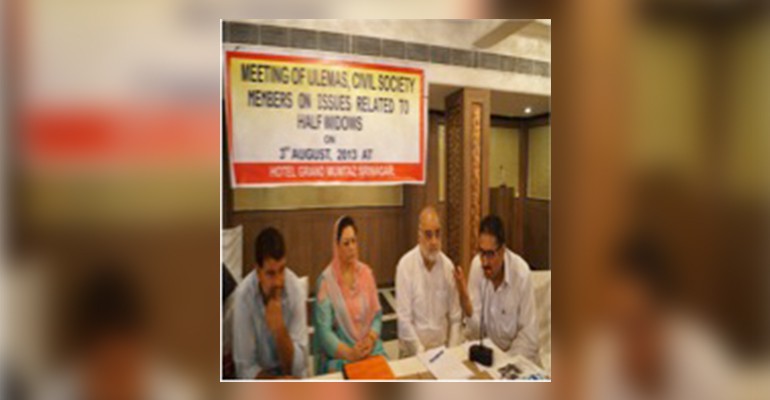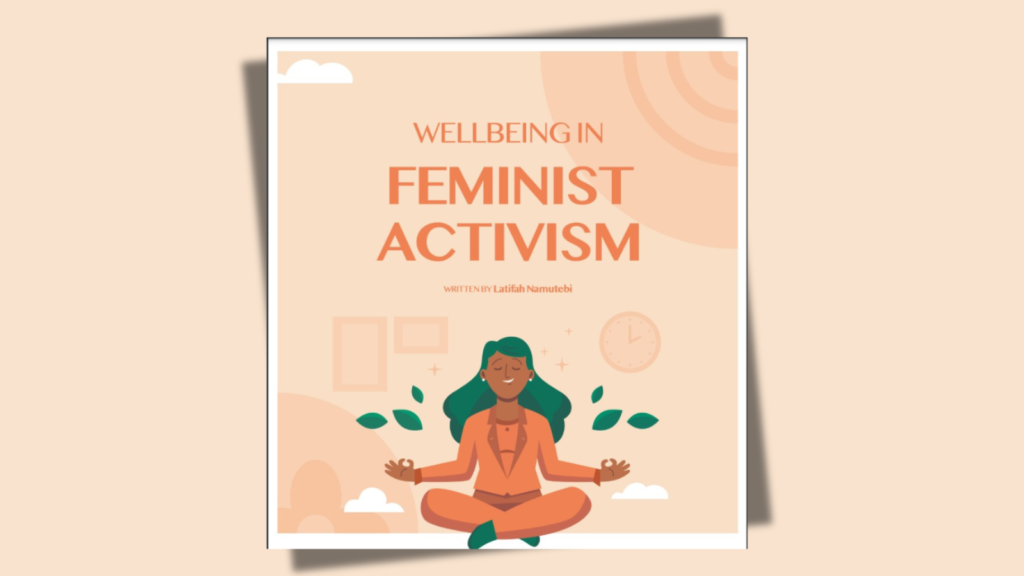Due to the prolonged conflict in Kashmir, since 1989, thousands of civilians have been killed in Kashmir. While most of the killings have taken place at the hands of security forces from unprovoked shooting, fake encounters, in custody and other methods due to the result of actions by the non-state actors and militants. A conservative estimate of enforced disappearances puts it at 8000 while the state government acknowledges 4000 disappearance cases.
Many have been permanently physically disabled, some have been raped and some tortured leading them to become mentally ill. In fact, women have been the worst sufferers. They continue to suffer as mothers, spouses, widows, sisters and grandmothers. The worst affected however, are the half-widows/half wives.
Half widows suffer social, economic and emotional insecurity. Widowed women know that their husbands are dead, can take a decision about their future and are entitled to some compensation under State law.
Half-widows on the other hand are uncertain about the future and are only entitled to compensation on production of death certificates – which they never receive. This makes the half widows most vulnerable, as there are no legal or administrative remedies available to them.
The widows, orphans, half widows and half orphans face numerous challenges. These range from their limited rights to property; particularly land and houses owned by their husband’s families; to their right to compensation and right to re-marry.
Most half widows are Muslim and there is no consensus in Islamic law on their remarriage. All the major schools of thoughts, the Hanfia, the Maliki; Shaafi; Hambali and Jafria provide different guidance about remarriage. Thus while the Hanafi school says that a woman should wait for 90 years after her husband’s disappearance some scholars of Maliki school put the wait period as 4 years and some as 7 years. There is also an opinion that if the husband remains missing, without informing about his whereabouts even after proper investigation, the marriage is deemed dissolved.
Opinions also differ on the validity of a second marriage should the first husband return. Some are of the opinion that the second marriage is automatically nullified on arrival of the first husband. Others hold that the second marriage will remain valid if a Qazi nullifies the first marriage even when the first husband returns. As per a circular issued by Jammu and Kashmir government a few years back, a half widow has to wait for seven years after the disappearance of her husband to remarry.
However, a landmark judgment by a Kupwara court on December 31st, 1993 granted permission of remarriage to one Hamida whose husband Mohi-ud-din Bhat had disappeared just 4 years before.
Against this background, I decided to address this issue within the jurisprudence of Islam.
The difference in interpretation of Sharia law which binds every Muslim man and woman needed to be addressed in a rational manner and a consensus to be arrived at in the light of Quran and Hadith (sayings of Prophet) regarding the “wait period” in case of half widows willing to remarry.
I felt it was also important to sensitize the people about the socio-economic and emotional problems of widows and half-widows; to mobilize support and rehabilitate this sizeable population of Kashmir society.
I organised a congregation under the banner of Ehsaas (Conciliation Resources’ supported gender Peace building group in Indian Administered side of Kashmir) with an initiative to sensitize the community about the issues faced by the half widows and to find a consensus on the issue of re-marriage and property rights of the victims within the jurisprudence of Islam.
This was first such initiative by any group of civil society in Kashmir during the past 25 years of conflict.
Eight Ulema (religious scholars) from different schools of thought of Islam took part, along with members of civil society, representatives of the Association of Parents of Disappeared Persons (APDP) and a few half widows to discuss solutions to the critical issues faced by half widows.
Many brainstorming sessions were held with the Ulema, half widows, members APDP, civil society and women activists. Finally the Ulema reached a consensus to find a way for the half widows vis a vis their issues of re-marriage and the property.
They decided to pave way for half widows to re marry after four years of their husbands’ disappearance against many opposing rulings from different schools of thought. Wide coverage was given to this breakthrough in the State and national level papers. All sections of the society appreciated and lauded this effort.
Parveena Ahangar, Chair person of APDP, said, “These women (half-widows) have devoted their whole life in search of their husbands and in taking care of their children. I am not sure if all of them will remarry. But there has to be guidelines to address the issue of re-marriage and addressing property and inheritance issues.”
Ezabir Ali is an alumna of the 2013/14 Isis-WICCE International Exchange Programme Institute.



